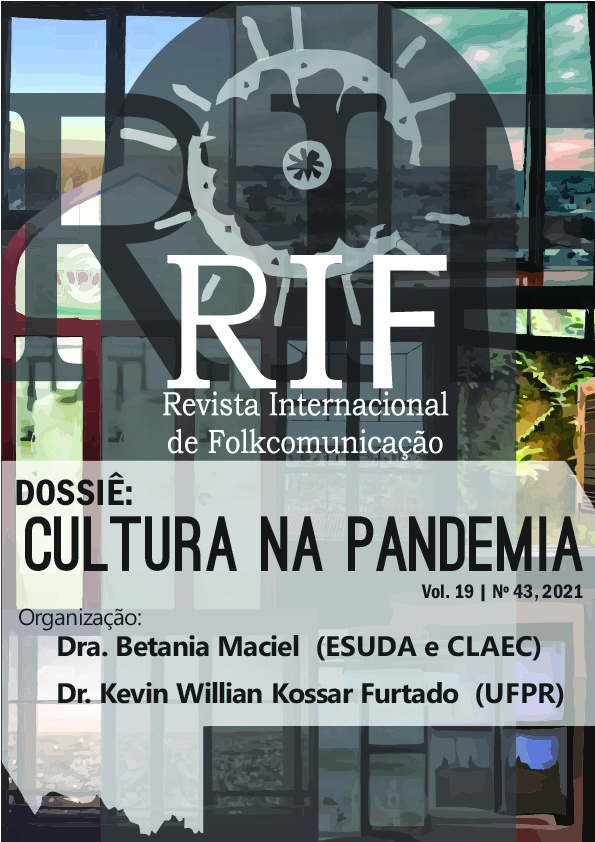Contributions to think about the relationships established between documentary filmmakers and leader folkcommunicators
DOI:
https://doi.org/10.5212/RIF.v.19.i43.0016Abstract
The work studies the relationships established between documentary filmmakers and leader
folkcommunicators, identifying if the represented relationships are the result of a dialogical
ethics, in the light of the buberian philosophy and folkcommunication. The research seeks to
reflect on the relationships between those who produce documentaries and those who are
filmed, due to the fact that the Brazilian media represents, in a generalist way, the peripheral
female and male subjects. As a methodology, the work makes use of bibliographic research
and descriptive film analysis on the Brazilian documentaries Fala Tu (2003) and Aqui Favela: o
rap representa (2003). The choice of films is due to the difference in the approach about the
hip hoppers and for the proximity in the realization of the productions. Thus, this work sought
to reflect, specifically, about the relationships (ethi cs, non-ethics) that can be identified in
documentary film productions, however, the notes fit for other media that promise assertions
about the historical world.
Downloads
Published
How to Cite
Issue
Section
License

Este obra está licenciado com uma Licença Creative Commons Atribuição 4.0 Internacional.
Os autores são responsáveis, em qualquer que seja o formato do texto, pelas opiniões expressas ou indiretas presentes em seus respectivos trabalhos, não endossáveis pelo Conselho Editorial e pelos editores da Revista, bem como pela autenticidade do trabalho. Ao publicar trabalhos na Revista Internacional de Folkcomunicação, os autores cedem automaticamente os direitos autorais à publicação para veiculação das produções acadêmicas, sem ônus para a Revista. Os autores detêm os direitos autorais do texto para o caso de publicações posteriores e concedem à Revista Internacional de Folkcomunicação o direito de primeira publicação, com o trabalho simultaneamente licenciado sob a Creative Commons Attribution License, que permite o compartilhamento do trabalho com reconhecimento da autoria e publicação inicial nesta Revista. Por serem publicados em revista de acesso livre, os artigos são de uso gratuito, com atribuições próprias, em atividades educacionais e não-comerciais, sendo permitida a publicação simultânea em repositórios institucionais.































